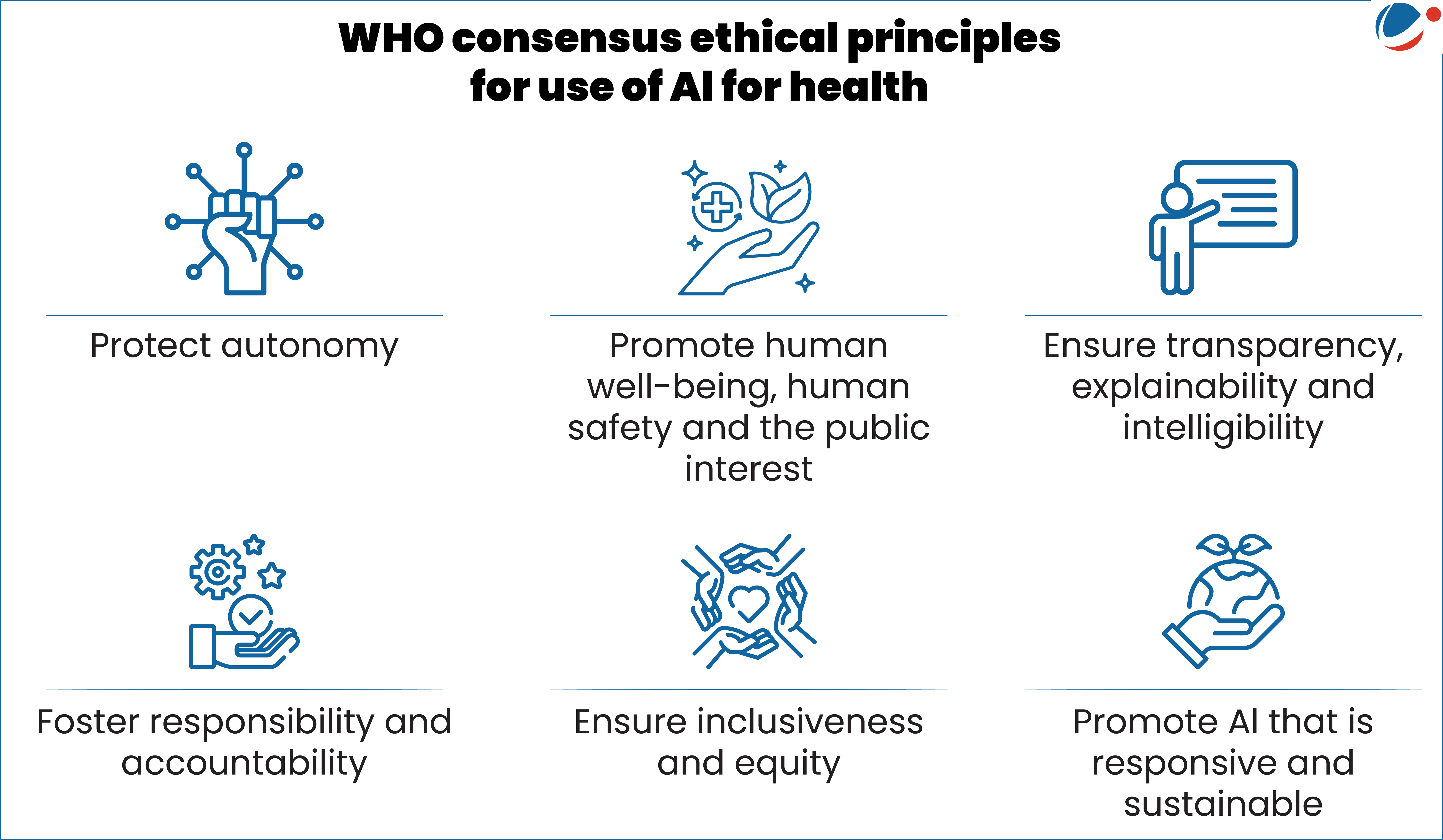WHO designated the Digital Ethics Centre at Delft University of Technology in the Netherlands as a WHO Collaborating Centre on Artificial Intelligence (AI) for Health Governance.
- It will be instrumental in WHO’s efforts to ensure the ethical and responsible use of AI for health by advancing research on priority topics and providing expert input for policy-making.

AI in Healthcare
- Predictive modelling: Analysis of patients' medical history, genetic information etc. to predict susceptibility to certain diseases or progression of existing conditions.
- Research and Development: Accelerated drug and vaccine discovery with planning and execution of targeted clinical trials.
- Disease Diagnosis and Monitoring: Patient screening, accurate medical image recognition and precision medicine.
- Care Economy: Help manage ageing through virtual assistant chatbots, pattern recognition and utilizing advancements in preventive healthcare.
Challenges to AI in healthcare
- Data security and privacy issues: AI in healthcare generates and stores vast amounts of sensitive personal and medical information, making data security a concern.
- Algorithmic bias: Risks increasing disparities through reinforcement of existing biases for certain individuals or groups.
- Fragmented regulatory framework: Lack of clear regulation and rising public distrust in AI raises the question of fixing responsibilities.







